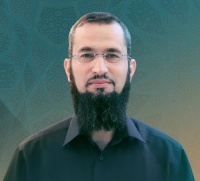Home » Jordan » Press Releases » JOR - News » Jordan: Eyad Qunaibi, Detained For Seven Weeks for a Facebook Article, Risks Trial before the State Security Court for "incitement against the political regime"
Following the publication on 10 June 2015 of his article on Facebook – "Jordan heading for the abyss" –, Qunaibi was summoned several times to the General Intelligence Directorate (GID) – which is known for its broad powers to monitor public life in Jordan, its close ties to the U.S. Central Intelligence Agency and its frequent use of torture and ill-treatment – and interrogated on his publications on social media. On 15 June 2015, Qunaibi was arrested at the GID Amman headquarters, a detention centre which is not subjected to any independent oversight, depriving its detainees of basic safeguards against human rights violations.
Qunaibi was then transferred to the Muwaqqar II high security prison, located a few kilometres outside the town of al Muwaqqar in the Amman Governorate, where he is still detained in a situation of prolonged solitary confinement, with his family allowed to visit him once a week. In this regard, Alkarama recalls that the UN Special Rapporteur on Torture (SRT) recognises that prolonged solitary confinement amounts to torture or cruel, inhuman or degrading treatment or punishment, which is sometimes used as an extortion technique during pre-trial detention.
On 18 June, Qunaibi was informally accused by the State Security Court Prosecutor of "incitement against the political regime" according to article 149 of the Penal Code. Jordanian authorities often use charges under this provision to silence critical voices or political opponents, as documented by Alkarama in previous cases. The fact that Qunaibi is likely to be deferred to the State Security Court is alarming, as the SSC is known for its blatant disrespect of due process guarantees.
Since his arrest seven weeks ago, Qunaibi has not been brought before a judge. According to the International Covenant on Civil and Political Rights (ICCPR), to which Jordan is a party since 1975, anyone arrested on criminal charges shall be brought promptly before a judge authorised by law to decide on the lawfulness of his or her detention and, should it be the case, to order his or hers release. Qunaibi's detention constitutes, therefore, a clear violation of the Covenant.
In view of these facts, his family appealed to Alkarama, who raised his case with the UN Working Group on Arbitrary Detention so that it calls upon the Jordanian authorities to release Qunaibi immediately, as it is clear that his detention results from the exercise of his right to freedom of expression by publishing an article on Facebook.
Considering the systematic crackdown on dissenting voices under the pretext of "the fight against terrorism," Alkarama urges Jordan to:
• Abolish the SSC and take concrete steps to ensure that all courts fully respect the defendants' right to fair trial, including by ensuring access to legal counsel and public hearings before a competent jurisdiction;
• Cease prosecution of peaceful protesters, political opponents and all critical voices, especially before the SSC;
• Place all state security services, especially the General Intelligence Directorate, under the sole authority of the General Prosecutor and establish independent oversight of these services;
• Ensure effective parliamentary oversight for all security services, limit the extensive powers of the GID to monitor, arrest and detain individuals, including through effective separation of powers, in law and practice, between the authorities responsible for detention of suspects and those responsible for preliminary investigations.
For more information or an interview, please contact the media team at This email address is being protected from spambots. You need JavaScript enabled to view it. (Dir: +41 22 734 1008)
 Algeria
Algeria Bahrain
Bahrain Djibouti
Djibouti Egypt
Egypt Iraq
Iraq Palestine/Israel
Palestine/Israel Jordan
Jordan Kuwait
Kuwait Lebanon
Lebanon Libya
Libya Mauritania
Mauritania Morocco
Morocco Oman
Oman Qatar
Qatar Saudi Arabia
Saudi Arabia Sudan
Sudan Syria
Syria Tunisia
Tunisia United Arab Emirates
United Arab Emirates Yemen
Yemen Other Countries
Other Countries







